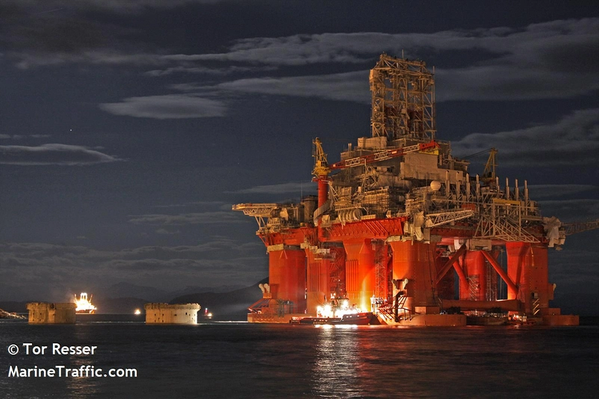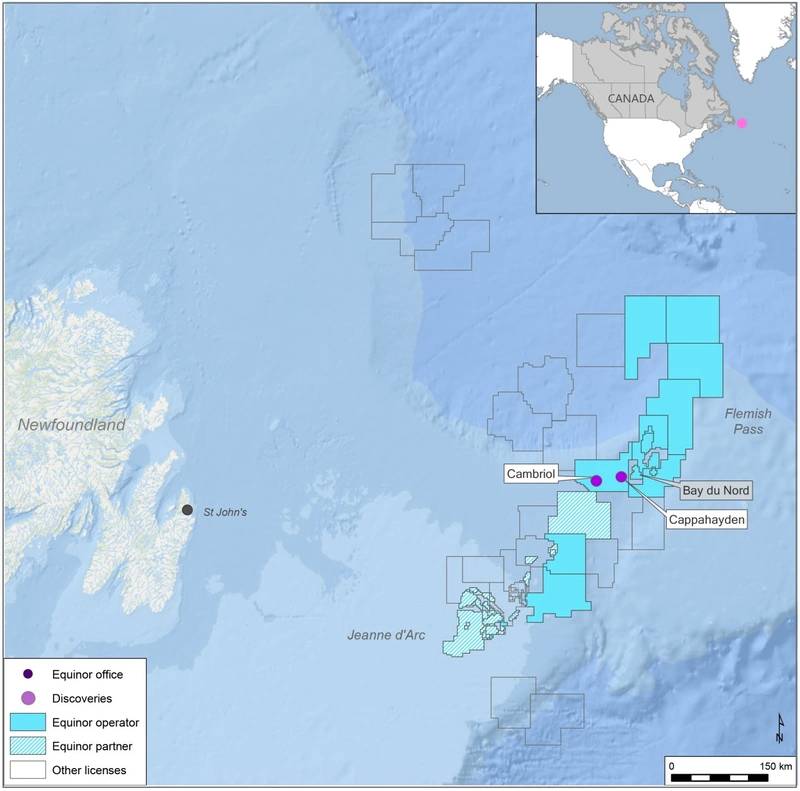
A Canadian offshore oil regulator said on Friday that it has licensed a significant discovery by Equinor near the country's Atlantic coast.
Global oil companies are pumping billions of dollars into offshore drilling because they can turn profits at lower prices than some onshore production, although they are expensive to build.
They also can generate fewer emissions per barrel due to their massive scale, but still add to overall air pollution.
Canada's Atlantic coast attracted extra attention as oil prices climbed last year, and Norway's Equinor is close to a final decision on building its Bay du Nord project offshore of Newfoundland and Labrador.
The Canada-Newfoundland and Labrador Offshore Petroleum Board said the latest Cappahayden K-67 discovery has an estimated 385 million barrels of recoverable oil.
Bay du Nord has 500 million barrels of recoverable oil. Companies that explore must apply for a significant discovery license once they discover oil and gas to preserve their rights to exclusively produce in that area, according to the Canada Energy Regulator.
Once a company is ready to produce oil or gas it must ask the regulator for a commercial discovery declaration. Equinor owns 60% of the discovery, and BP PLC owns the remaining 40%, according to the license.
(Reuters / Reporting by Rod Nickel in Winnipeg/Editing by Marguerita Choy)
 Credit: Equinor
Credit: Equinor